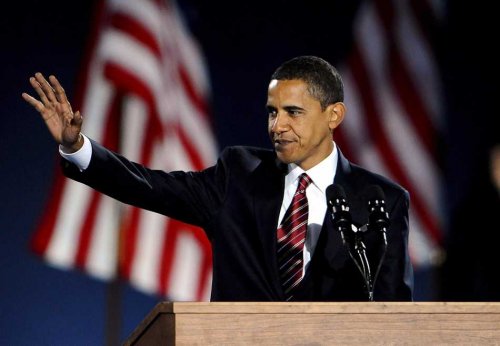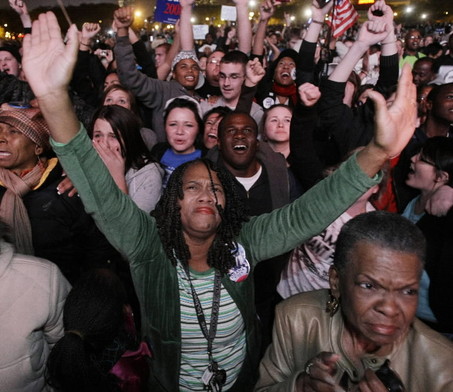
The day after the 2008 election of Barack Obama, our first African-American President, it is a truly historic time to be an American. Slavery was one of the United States' original sins, practiced and tolerated even as the country declared our independence from England in 1776, and part of the national fabric for nearly a century afterwards. The violent overthrow of Reconstruction in the South and imposition of Jim Crow laws relegated most black Americans to second-class citizenship for another eighty-odd years, until the civil rights movement smashed the legal underpinnings of segregation and the 1965 Voting Rights Act finally gave the power of the vote to all.
The wounds borne of such a long struggle against racism, hatred, and enforced economic servitude remain with us today. Less than a year ago, the concept of a black American president was still considered fantasy to many, or, as Bill Clinton swears he was misquoted in January, "the biggest fairy tale" imaginable. Some thought Obama’s presidential run was destined to fail for this reason alone.
Yet he won in Southern states like Virginia, capitol of the old Confederacy, and North Carolina, cradle of the sit-in movement in 1960, by mobilizing the same multi-racial coalition that first swept him over the top in South Carolina's primary early this year. And Obama carried Florida, with a big assist from his early vote strategy, the state where elections stolen from black voters shut down Reconstruction in 1876 and led to our current national nightmare under George W. Bush in 2000.
A wave of euphoria gripped the country starting on election night, with Americans dancing in the streets from coast to coast. Today, newspapers sold out their entire press runs and rushed to print more copies to meet demand for the celebratory headline, "Obama Wins." The eminent Duke University historian John Hope Franklin confirmed the national mood, calling it "one of the most momentous, if not the most historic moment in the history of this country."
Obama's victory does not spell the end of racial disparity in America, but it is a ringing sign of progress, a triumph on the road to greater equality and realizing the Dream that Martin Luther King, Jr. revealed to us.
Earlier this afternoon, Henry Louis Gates, Jr. delivered a stirring commentary on NPR’s All Things Considered (originally written for TheRoot.com) in which he compared today to the day after Lincoln signed the Emancipation Proclamation, and shared the reaction of Frederick Douglass:
"the greatest black orator in our history before Dr. King Jr., (who) said that the day was not a day for speeches and 'scarcely a day for prose.' Rather, he said, 'it is a day for poetry and song, a new song.' "


No comments:
Post a Comment